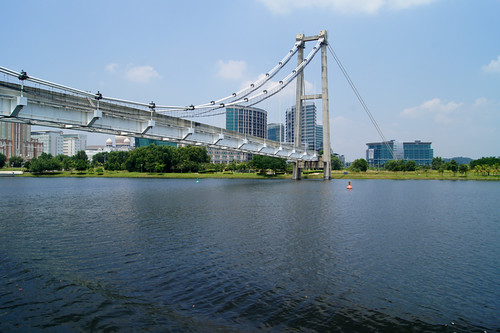For the Dubious Role of Mamata Banerjee, the Islamist-Naxal-CWG tie up has been geared up to increase subversive activities in West Bengal. Conspiracy to destroy Hindu identity of West Bengal.
Naxals forged ties with ISI with SIMI’s help: Bengal DGP
Reports complied from the input of Sudhi Ranjan Sen , NDTV and Vishwa Mohan, TNN | Oct 19, 2012 | NEW DELHI: West Bengal’s top cop today told the Ministry of Home Affairs (MHA) that there was clear and a growing link between the CPI (Maoist) and Pakistan’s dreaded Inter-Services Intelligence (ISI) Agency. West Bengal Director General of Police (DGP) Naparajit Mukerjee also told the MHA that the link between the Maoist and the ISI was clear in four districts bordering Bangladesh, including Murshidabad.
Mr Mukerjee made this revelation to the MHA in a meeting to review the progress made by states to deal with the threat of Maoist insurgency. Maoists have a strong to moderate presence in as many as nine states in India. Central security agencies have earlier warned about the growing links between the CPI (Maoist) and militant Islamic outfits like the banned Students Islamic Movement of India (SIMI). A link between Pakistan’s ISI – accused of being the master mind of the 26/11 Mumbai strikes and also believed to have strong links with terrorist organisations the Lashkar-e- Taiba (LeT) – and CPI (Maoist) hasn’t yet been said so definitively.
In a related development, the MHA has asked the states not to swap hardcore Maoist to secure the release of hostages. In May this year, the Maoist had kidnapped Sukma collector Alex Paul Menon. He was kept a hostage for 13 days and Maoists had demanded the release of several hardcore arrested insurgents. The MHA has also asked the states to have a trained and dedicated team of negotiators for hostage negotiations. Maoists may have been facing all-round reverses in West Bengal ever since chief minister Mamata Banerjee took charge of the state last year, but they have forged a deadly alliance with the Pakistani spy agency ISI through overground radicals and remnants of the banned outfit SIMI during the period.
Revelation was made by the West Bengal police chief Naparajit Mukherjee here on Thursday when he told a gathering of chief secretaries and DGPs of other naxal-affected states about the growing Maoist-ISI nexus in four districts of the state.
Expressing his anguish over the development, he is learnt to have said that the nexus had been reported after arrests of some Maoists who elaborated how overground sympathizers of the Red Ultras acted as a ‘link’ for them.
Murshidabad, West Midnapore, Purulia and Bankura are the four districts where the West Bengal Police had noticed actions that hinted at Maoist-ISI linkages. The link is believed to be helping the ultras in getting arms and ammunition through existing network of north-east insurgents.
Though the Union home ministry did not add to what Mukherjee told the gathering over the nefarious link, security and intelligence agencies spoke about the possibility through Maoists sympathizers. They also said that the Maoists’ support to the Jammu & Kashmir terrorists for their cause in the bordering state had never been a secret.
The disclosure of Mukherjee comes even as Bengal has shown remarkable change in the situation where it effectively controlled the Red menace in the past one year through consistent intelligence-based operations against the Red Ultras.
Home ministry latest figures on naxal violence show that West Bengal – once a hotbed of Maoist activities – has, in fact, moved closer to what Andhra Pradesh had achieved by reporting zero casualty consistently in past so many years.
Ministry’s statistics, based on state’s reports, show that none of three highly Maoist-affected districts – West Midnapore, Purulia and Bankura — did not reported any killing in the past 10 months. The period, which incidentally coincides with the Banerjee’s rule in the state, had also seen the elimination of senior naxal leaders including top CPI(Maoist) politburo member Kishenji and arrest of several others during joint operations of state police and central paramilitary forces.
West Midnapore, which witnessed as many as 360 deaths (out the casualty list, death of 95% Hindus proved that the Maoists targeted Hindus to terrorize the common people to control them under gun fire. – Ed. Hindu Existence.) of civilians and security personnel during 2009-11, has reported zero casualty this year. Purulia, Bankura, Birbhum, Murshidabad and Malda have also not reported any casualty.
Officials here believed that human intelligence-based ‘specific’ operations as well as the CM’s approach to reach out to people directly in the Maoist-affected districts had played important role in achieving such a situation in West Bengal.
“Mamata Bannerjee is the only chief minister who holds regular meetings and rallies right in the naxals’ dominated districts. This political move to fill the vacuum created by the retreating Maoists proves to be a boon for West Bengal”, said a senior home ministry official.
Hindu Existence says: West Bengal was created by Dr. Shyama Prasad Mukherjee by cutting the territory of East Pakistan, only to make a safe and secured place of Bengali Hindus. Patriotic Hindu Saint Acahray Swami Pranavanada (Founder of Bharat Sevashram Sangha) and Dr. Mukherjee (Founder-President of Jana Sangha) contributed their all endeavour relentlessly to make West Bengal as a fortified land of Bengali Hindus. History tells us who were with Dr. Mukherjee that time and who opposed it to tag this land with East Pakistan for retaining an Islamic Supremacy over the Bengali Hindus.
Again,
those descendants of Muslim Leaguers are presently trying to regain the
Islamic Supremacy in West Bengal with a hand to hand conspiracy between
Naxalites, ISI-DGFI-SIMI and various Christian War Groups (CWG). In the
event of murder of Swami Laxmanananda Saraswati by the Maoist and CWG
nexus, brought the truth of Naxal-Christian coordination against Hindus
in the broad day light.
Manifestations
like going to Haj by the senior most Communist Leader – Razzak Molla,
meeting of ADGP(T) – Nazrul Islam with Naxalite leader Santosh Rana to
create a Dalit-Muslim force in West Bengal, as reported or hobnobbing
with Islamist like Taha Siddique or Nurar Rahaman Barkati by Mamata
Banerjee herself or pretensions of the WB CM by adopting an Islamic
culture and dress-up even in Hindu festivals, are the clear milestones
of a Changing West Bengal within a Islamic frame work.
We
must convey our gratitude to Mr Naparajit Mukherjee, DGP, West Bengal
Police for his courageous stand to reveal the up-growing threat of
Islamic and Naxalite threat to West Bengal with all its seriousness.

Allah’s Missionaries in West Bengal.











 Padahal Soros dan Mahathir pernah menjalin permusuhan senyap sejak awal 1990-an.
Padahal Soros dan Mahathir pernah menjalin permusuhan senyap sejak awal 1990-an. Hanya Malaysiakini satu-satunya media alternatif yang sepadan dengan media besar arus perdana. Maka, beliau memilih Malaysiakini, selain pentas-pentas ceramahnya di serata negara.
Hanya Malaysiakini satu-satunya media alternatif yang sepadan dengan media besar arus perdana. Maka, beliau memilih Malaysiakini, selain pentas-pentas ceramahnya di serata negara. Mereka
bergembira atas kenaikan Bush semata-mata dendam mereka pada Gore -
sewaktu itu, 1998, naib presiden Amerika Syarikat - yang pernah
melemparkan percikan sokongan pada Gerakan Reformasi dalam ucapannya di
Kuala Lumpur.
Mereka
bergembira atas kenaikan Bush semata-mata dendam mereka pada Gore -
sewaktu itu, 1998, naib presiden Amerika Syarikat - yang pernah
melemparkan percikan sokongan pada Gerakan Reformasi dalam ucapannya di
Kuala Lumpur. Dana
yang disalurkan secara gelap kepada Abramoff - bersama taktik gelap
pelobi itu sendiri - menyebabkan Senat Amerika menyiasatnya.
Dana
yang disalurkan secara gelap kepada Abramoff - bersama taktik gelap
pelobi itu sendiri - menyebabkan Senat Amerika menyiasatnya.  Di saat itulah, Mahathir mempergunakan Malaysiakini dalam
Di saat itulah, Mahathir mempergunakan Malaysiakini dalam  Musa akhirnya tersungkur dan sekali gus tersingkir dengan beban sejarah yang ditanggungnya hingga saat ini.
Musa akhirnya tersungkur dan sekali gus tersingkir dengan beban sejarah yang ditanggungnya hingga saat ini. Dalam wawancara terakhirnya di Malaysiakini,
hanya tiga hari sebelum 8 Mac 2008, Dr Mahathir menyokong penuh barisan
pembangkang - perlunya pembangkang yang menunjukkan sisi-sisi hodoh
wajah politik kerajaan.
Dalam wawancara terakhirnya di Malaysiakini,
hanya tiga hari sebelum 8 Mac 2008, Dr Mahathir menyokong penuh barisan
pembangkang - perlunya pembangkang yang menunjukkan sisi-sisi hodoh
wajah politik kerajaan. 


